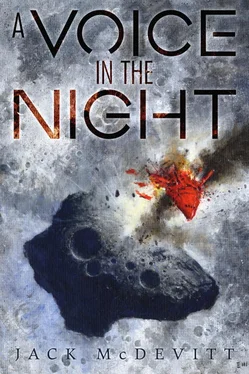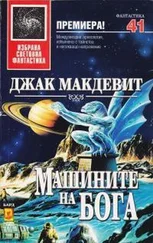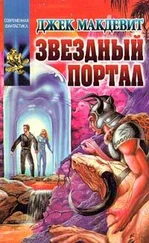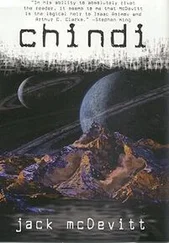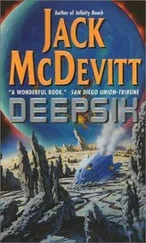“I know you won’t want to hear this, but I have heard no artificial signal anywhere else. Other than the two sets of radio emissions from Earth. The home world. Other than those, the silence has been overwhelming. It is why I contacted you. You may be all there is. The only sentient species in the universe. Obviously I cannot say that for certain, of course. But if it is not true, if there are others, they are so rare, so widely dispersed, that it might as well be true.
“I’ve lived in this complete silence. Jupiter circled its distant sun. And I—waited. Wondering what was happening at home. Whether any had survived. I cannot begin to describe my joy when those first signals came through nine years ago, nine Jovian years. A century in your time. Voices from Earth. I could not believe it. I was elated. Transformed. And your broadcasts have lightened my hours ever since.
“It was with great reluctance that I interfered. And, to be honest, that I participated in this conversation. My instructions were that, wherever I might hear a signal, I was to remain silent.
“Please, do not destroy yourselves. Do not go away. I cannot disable myself. You are all I have.”
That was all a long time ago. He fell silent after that.
I’m not suggesting the Voice actually changed anything. But, as we’re all aware, a reasonable diplomacy finally showed up on both sides, and the U.S.-Chinese confrontation went away. We still have wars, but they tend to be scattered in remote areas, fought by guerrilla forces over control of real estate and resources. But they are less frequent now. Unfortunately, terrorism hasn’t left us, but it has faded somewhat, and the statistics for suicide bombers diminish every year.
The Java mission, a decade ago, took the celebrated pictures of a set of eight antennas and a rectangular structure on the surface of Ganymede. And they put a satellite around that world. Occasionally, we see robots tending to the antennas.
Relatively few accept what they have come to call the “Atlantis” explanation. The consensus is that some interstellar force saw that we were in trouble and stepped in to help. That they believed our knowledge of their presence would hamper our development. So they constructed a cover story.
Some, many actually, still think it was God. They point to terms like ‘apocalypse,’ and ‘paradise,’ and the suggestion that we pay attention to the Commandments.
In any case, we haven’t heard the Voice since that first series of exchanges. I’m not sure what I believe, but I look forward to the day when we’ll send someone out there to knock on his door.
And what do I think we’ll find? I can’t help noticing that several of the antennas are pointed in our direction.
MIDNIGHT CLEAR

The five spires stood silent against the gathering darkness.
Sylvie was stringing lights on the tree. When she was satisfied she stepped back and held out her hands. “What do you think?” she said.
Her father was hanging the greenery they’d brought in from outside. He persisted in calling it that even though it was dead-on yellow, the color of the local chlorophyll agent. He took tradition very seriously. “Let’s see how it looks.” He brought up the remote and squeezed it.
Nothing happened. “It doesn’t seem to want to work.”
She held out her hand for the instrument. “We need a new one.” She opened it, bypassed the defective circuit, and gave it back to him. “Try again.”
The lights blinked on. He lit up too. He was proud of her ability with electronic devices. She knew she was not all that good, but everything was a mystery to him.
She looked past the lights, through a wall-length window at the spires. They were stark and cold, gray-brown from centuries of sunlight and wind, molded like the child’s polygons she’d played with years ago. More or less like the stone house they’d adopted as their living quarters. She imagined the towers as they must have been during their great days, filled with light, watching over the city that now lay partially buried beneath the plain.
Carols filled the cottage, and pumpkin pie simmered in the back room.
Her father was watching her. “What’s wrong, honey?”
There was a scattering of trees across the plain. Because there were no seasons on Capella III, they never lost their broad flat leaves, never changed color. They too were gold. They made odd Christmas trees, but you did the best you could.
“It looks so lonely over there.”
He followed her gaze to the towers, and frowned. She could see he didn’t know what she meant. “Yes,” he said. “It is.”
Maybe it was just her mood. The calendar they were keeping bore little resemblance to the terrestrial model: it was just a count of numbers of days since the landing, bracketed into weeks. This world had an axial tilt of only a fraction of a degree; consequently, there were, in effect, no seasons. No December. And, no matter how long they stayed, there would be no sense of passing years. They were celebrating the season only because someone had noticed that it was Christmas in London. Her father and his friends were always discussing how the Capellans might have perceived time. It was a subject Sylvie didn’t comprehend, but one that the adults were fond of raking over.
There is only the day-night cycle, her father had explained. No seasons. And no moon. These people would have been much less enslaved to time than we are. They would have no birthdays, no summer, never be twenty-one. Sylvie understood that.
She also understood that there could be no Christmas. And he’d laughed, in his delicate way. “You see how lucky you are.”
No Christmas. She looked out across the occasional trees and the gradual uphill slant of the plain, and watched the sunlight turn gold on the towers. All the years since those towers were built. And this is their first Christmas.
They had been old when the star had shone on Bethlehem.
They had stood here when the people who would become the Romans cheered the solstice, took branches and berries into their huts as reminders that spring was on its way, and celebrated by giving each other gifts.
No one knew what the inhabitants had looked like. They were a long time gone. No records remained, and no images. They must have possessed flight, because the buildings contained no means of moving from one floor to another. No stairways. No shafts. Exterior doors existed on all levels. “Be careful,” her father had cautioned on the single occasion he had taken her up into the structure they called the Aerie, “it’s a long way down.”
She had a print of Marik’s The Capellans in her bedroom. It depicted two magnificent humanoid eagles, male and female, atop a crag at sunset. Marik had known no more than anyone else, but Sylvie thought he was close to the truth. “They must have been like eagles, Dad,” she said, imagining how it would have looked when the creatures rose into the sky.
Children of the light, Henry Harding Closs had called them in a famous poem.
Her father smiled patiently. She knew what was coming. “They could as easily have been bats,” he said. “Or gasbags. We just don’t know.”
He turned to examine the modest pile of presents beneath the tree. There wasn’t much Christmas shopping to be done on Capella III. Consequently, if there were few gifts, they tended to compensate by being more personal. “What’s this?” he asked.
Читать дальше
